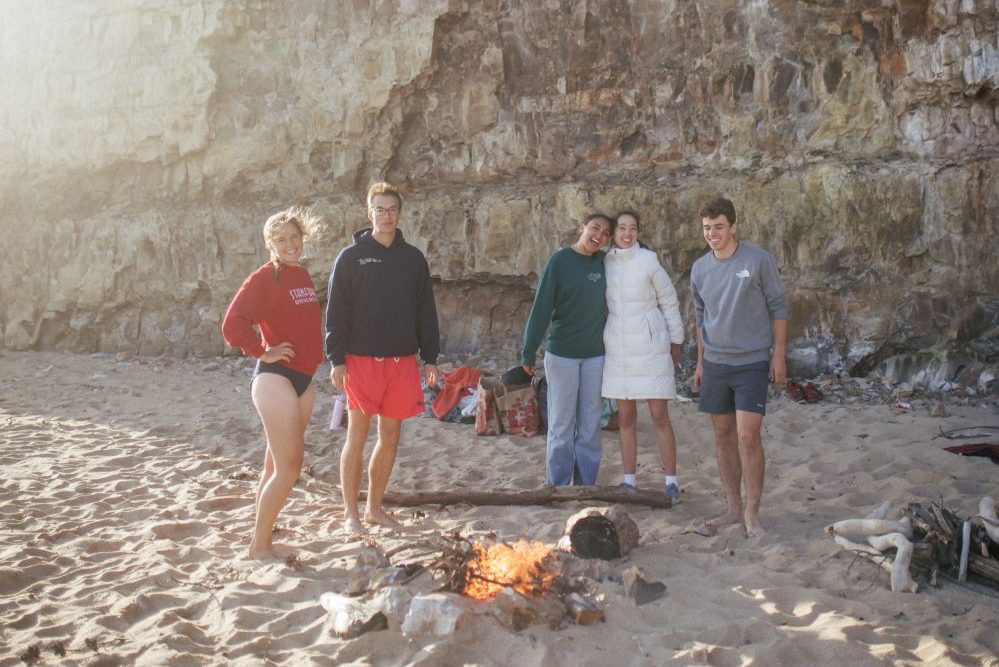People whose minds stopped evolving 20 years ago are having a snit because the Cambridge Dictionary, the world’s largest online lexicography, has added a few Gen-Z and Gen-Alpha slang terms to its more than 6,000 entries. The most controversial include “skibidi,” “delulu” and “tradwife.” You could argue that the latter is more of a millennial linguistic formulation for the extremely online, but the other two are definitely youth newspeak.
Tradwife, as a term and a viral activity, is going to stick around for a while. “Skibidi,” derived from the YouTube Skibidi Toilet meme, is a word with as many meanings as “aloha” and “shalom,” and has the potential for a generation-spanning shelf life. “Delulu,” short for “delusional,” is a ridiculous babyism and is already about as cool and relevant as saying “cray cray.”
In other words, the world changes, time and language marches on. I would advise against heading in the mental direction of writer and artist Lee Escobedo, who wrote in the Guardian: “Skibidi brainrot encapsulates a generation fluent in irony but starved for meaning. This kind of hyper-chaotic media serves as both entertainment and an ambient worldview for young men raised online. Their minds normalize prank-as-expression.”
Kids today and their skibidi brainrot, amirite? This kind of stuffed-shirt intellectual condemning the kids’ vibe periodically emerges in generational cycles. Words come and go. But the real comedy comes when normies try to get hip with the youth.
Since I’m the last surviving member of Generation X, the current mild strain of language controversy reminds me of the “Lexicon of Grunge” that the New York Times published in 1992. Times freelancer Rick Marin (author of Cad: The Confessions of a Toxic Bachelor), seeking to report on how the cool kids were talking, called up the offices of Seattle indie-rock label Sub Pop. He got receptionist Megan Jasper, one of the greatest Gen-X heroes, on the line.
Jasper, who later ended up being Sub Pop’s CEO, proceeded to pepper Marin with a glossary of nonsense words. Despite some Times fact-checking, the terms got through the filter, leading Marin to write, “all subcultures speak in code.”
And that’s how we learned that “grunge” people used “swingin’ on the flippity-flop” to refer to hanging out. A loser was a “cob nobbler,” though not as bad as a “lamestain.” Some of the terms, like “harsh realm” and “score,” actually entered mainstream vocabulary. Unfortunately, “bloated big bag of bloatation,” for drunk, didn’t. In a 2020 interview, Jasper, in typical Gen-X fashion, regretted the whole episode, but in particular regretted that Marin didn’t use the term “tuna platter,” which she’d offered him as grunge slang for “hot date.” Either it was too risqué or so ridiculous that it rang even the Times’ broken BS detector.
The Gen-X irony here is that if she’d grown up in the age of TikTok, Jasper’s Grunge Lexicon might have gone mega-viral, becoming the actual lexicon, and fast. The world might have found itself calling old-ripped jeans “wack slacks.” There would be a “Bound and Hagged” entry in the Cambridge Dictionary, telling people that it meant “staying home alone on a weekend night.” But since it was Gen X, the words just fell into a pit, and will never see the light of dictionary justice.
So here’s to aimless young men and their prank-as-expression. Hooray for brainrot. Our brains are going to rot anyway, so we might as well play Word Jabberwocky while we can. One of the joys, for me, of being alive for nearly six decades is watching the world change, sometimes gradually, sometimes quickly. You can wake up and find yourself immersed in a whole new culture, a completely different language, and you don’t ever have to leave the house. Any skibidi cob-nobbling tradwife who doesn’t enjoy that feeling is being completely delulu.


























Leave a Reply